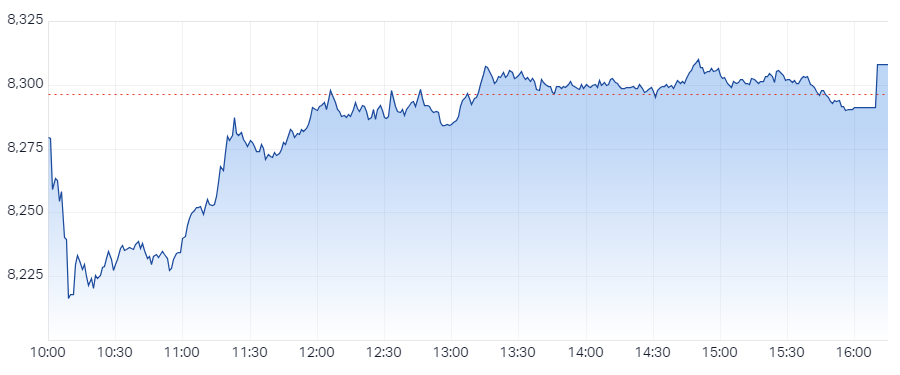The recent upheaval at WiseTech’s boardroom has sent shockwaves through the Australian technology sector, plunging the company into a whirlwind of controversy and financial loss. Following the resignation of four independent directors, the stock market reacted sharply with a staggering over $10 billion wiped from the company’s market valuation. Investors are reeling from the fallout of the latest White scandals that have surfaced, exacerbating investor concerns regarding corporate governance and ethical business practices.
This shake-up arrives in the wake of founder Richard White’s tumultuous leadership. Described as both visionary and controversial, White’s continued control has raised serious questions about business ethics within WiseTech. The combination of declining share prices and growing scrutiny has led to discussions about the future direction of the company. With all eyes now trained on the repercussions of this board shake-up, the focus on WiseTech’s operations, management, and stock market implications intensifies.
Unpacking the Implications of the Board Shake-Up
The sudden resignation of four independent directors at WiseTech poses significant implications for the company’s governance and future stability. This exodus has highlighted the tensions between maintaining key talent and ensuring robust corporate governance. Investors are asking hard questions regarding the management of corporate affairs and the ethical boundaries within which companies operate.

The Background of the Board Exodus
The decision by the four independent members to step down was reportedly made after ongoing disagreements regarding Richard White’s role as founder and CEO. Their resignation coincides with troubling allegations regarding White’s conduct, including claims of bullying and his inappropriate relationships with employees. This controversy has not only cast shadows over WiseTech’s leadership but also prompted fears about the integrity of its operations.
White, who holds nearly 40 percent of the company’s shares, effectively retains control despite the board’s shake-up. This concentration of power raises concerns that corporate governance may suffer. As Matthew Haupt from Wilson Asset Management remarked, the scenario indicates that talent triumphed at the expense of corporate governance. If the board lacks independence, it raises questions about the direction WiseTech will embark on in future endeavors.
As shares plummeted by as much as 24 percent following the board’s exit, the financial repercussions became immediate. Analysts observed that WiseTech shares had been on a downward trajectory for months, and this latest development led to a record drop with a market cap decrease of nearly $10 billion. Discontented shareholders have voiced concerns regarding the long-term viability of their investments amidst the backdrop of sizeable financial losses.
Investor Reactions and Concerns
The fallout from the boardroom shake-up has left investors in a precarious position. Many have expressed unease over the management practices at WiseTech, and the steep fall in share prices has compounded the anxiety felt among stakeholders. This recent downturn amplifies the underlying fears related to White’s past behavior and the potential negative outcomes for the company’s reputation.
Investors’ concerns remain primarily focused on his influence over the strategic direction of the company, especially after allegations emerged alleging his involvement in questionable dealings with employees. The reaction from the market indicates that shareholders are wary of the implications this scrutiny might have on WiseTech’s future investments and profitability.
Moreover, analyst commentary after the board exodus has revealed a consensus: a pressing need for new independent directors. Investors are beginning to realize that while White’s leadership has steered WiseTech to great heights, the effectiveness of its governance structures cannot be overlooked. Many believe that a robust system of checks and balances is vital to restoring investor confidence.
Understanding the Financial Losses and Market Reaction
WiseTech’s recent stock market news paints a troubling picture for the tech giant. A staggering drop in shares directly correlates with heightened scrutiny over their governance and White’s controversies. The downward trend primarily reflects investor trepidation regarding future stability and profits.

The Financial Impact on WiseTech
As WiseTech experiences severe financial losses, its investors are caught amid an environment of uncertainty. Reports confirm that the company’s forecasted revenues were downgraded, signaling a potential decline in growth expectations. This indicates the tangible impacts of the board turmoil on WiseTech’s broader financial health. The firm has indicated that while profit margins may remain healthy due to cost-cutting measures, the overall revenue will likely land on the low end of projections at the annual meeting.
Looking closely at the financial losses and market performance, it’s evident that the company’s future success hangs in a delicate balance. Analysts speculate that further revelations regarding White’s conduct could lead to even graver consequences. Shareholders are left to navigate uncertain terrain where business ethics and effective management clash frequently.
As the market digest these revelations, the pressure intensifies on WiseTech to stabilize and redirect its focus toward recovery and innovation. WiseTech has emerged as a beacon in logistics software, providing tools crucial for efficient operations and understanding global trade. Maintaining this edge is integral to modern business requirements, yet it can only be achieved through sweeping changes to its governance structures.
Market Predictions Following the Shake-Up
The stock market’s tumultuous response signals a more profound reflection on how companies should manage executive inappropriateness. Many market experts predict a wave of changes in corporate governance practices throughout the tech industry. Companies will likely emphasize ethical standards and transparent operations to prevent situations similar to that of WiseTech from occurring.
The Withdrawal of directors could lead to increased scrutiny from regulatory bodies focused on safeguarding corporate governance. Investors now expect more oversight and accountability regarding board functions. As such, the lessons learned from WiseTech’s plight could encourage businesses to adopt more ethical stances and ensure that adequate measures are in place to deal with corporate brushes experienced during tumultuous times.
Future Directions for WiseTech and Corporate Governance
As WiseTech navigates these challenging waters, the focus must shift towards crafting a more robust governance strategy. The current situation exposes deep cracks in the framework of control and accountability. Stakeholders lack confidence in a structure dominated by individual personalities, which can lead to detrimental practices if not properly checked.
How WiseTech responds to ongoing issues surrounding White’s conduct will undoubtedly shape its operational trajectory moving forward. Stakeholder satisfaction hinges on the emergence of ethical business practices within the corporate structure. The loss of confidence among their investor base cannot be overlooked since it directly impacts market performance and overall company health.
Establishing New Governance Standards
The call for more independent directors on the WiseTech board must be answered promptly. By enhancing their governance structures, the company cultivates an environment that will better address complex challenges and prioritize transparency. Diversifying board membership can also serve to bring a wealth of perspectives to the table, fostering better decision-making practices.
In tandem, WiseTech should actively engage in rebuilding its brand image, demonstrating a commitment to ethical business conduct and sound management alignment. By doing so, WiseTech can gradually recapture lost trust, signaling to investors that they are not only forward-thinking but also accountable to their stakeholders.
Institutional investors, too, must embrace the evolving landscape. With increased visibility into corporate operations, investors expect more comprehensive engagement from their executives. This change is crucial as it helps foster an atmosphere where diligence and accountability are paramount.
The Path Forward
Amid the turmoil surrounding White’s continuing role and the subsequent board shake-up, WiseTech stands at a crossroads. The potential for growth and recovery is attainable with the right strategy and cohesive action aimed at improving its governance structure. The significance of adhering to business ethics cannot be overstated, as it is key to ushering in a new era within the organization.
As WiseTech embraces transformation in its approach to management and corporate governance, the hope is that it will soon see a resurgence in investor sentiment and a stabilizing share price. However, the road ahead will demand unwavering commitment to enhanced practices and transparency at every level.
Going forward, WiseTech has the opportunity to emerge stronger from this chaos. Embracing ethical conduct as a core value not only ensures sustainability but serves to elevate the firm’s standing in a market that is constantly evolving.
Source: www.smh.com.au
Hi, I’m Sarah, a 30-year-old journalist with a passion for storytelling and uncovering the truth. I strive to bring important issues to light and connect with my audience through compelling narratives.



